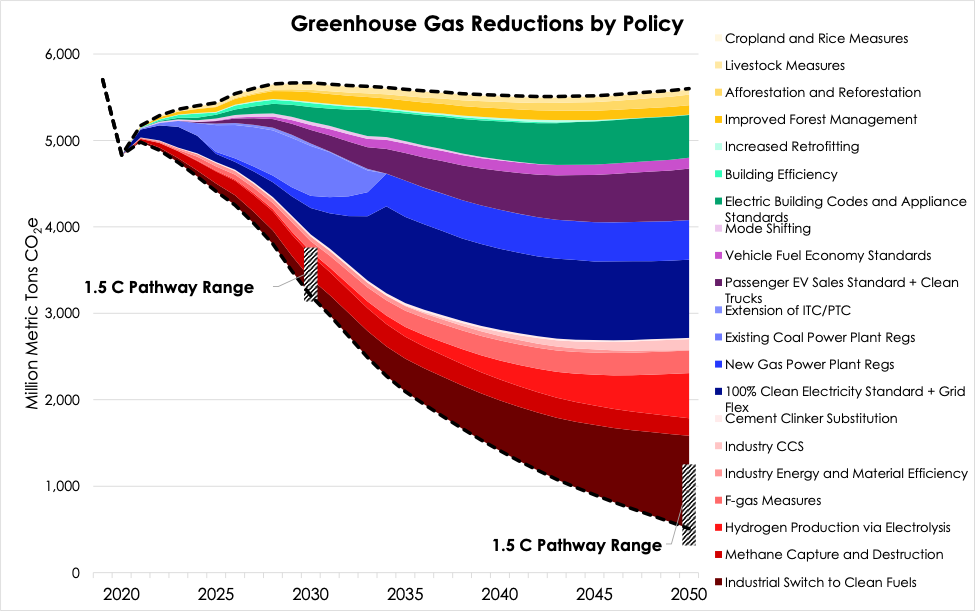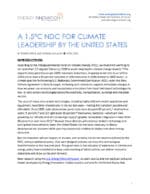To avoid catastrophic climate change, we must limit warming to no more than 1.5 degrees Celsius, which requires cutting greenhouse gas emissions roughly in half in the next decade with emissions dropping to near zero by 2050. Achieving these reductions can only happen by rapidly transitioning from a fossil fuel-based economy to one running on clean energy.
New research using the U.S. Energy Policy Simulator shows a comparatively small group of policies can achieve a 50 percent reduction in emissions this decade while generating large economic and health benefits. Transforming the economy in line with a 1.5°C target could increase U.S. gross domestic product by $570 billion per year in 2030 and by $920 billion per year in 2050 (a 2.4 percent annual GDP expansion), create more than 3.2 million new job-years by 2030 and nearly 5 million new job-years by 2050, avoid more than 45,000 premature deaths and 1.3 million asthma attacks by 2050, and build an economy insulated from fossil fuel-price volatility.

